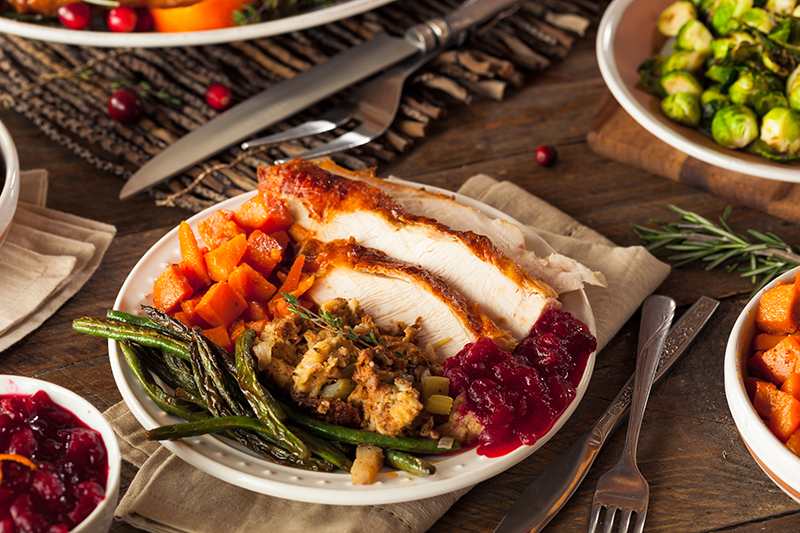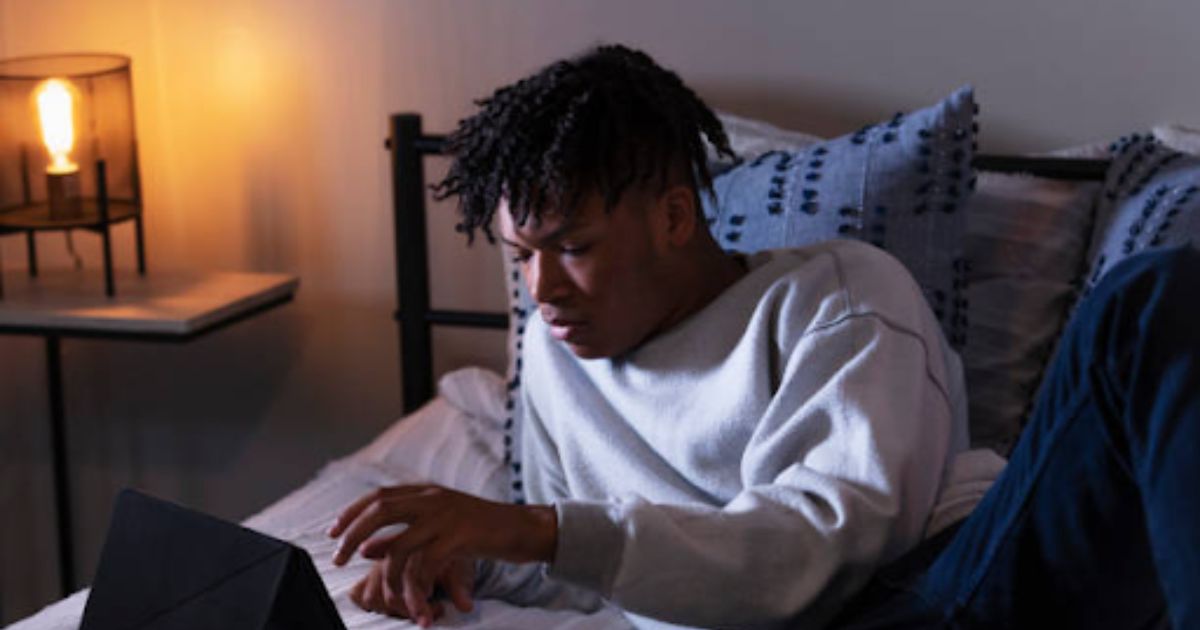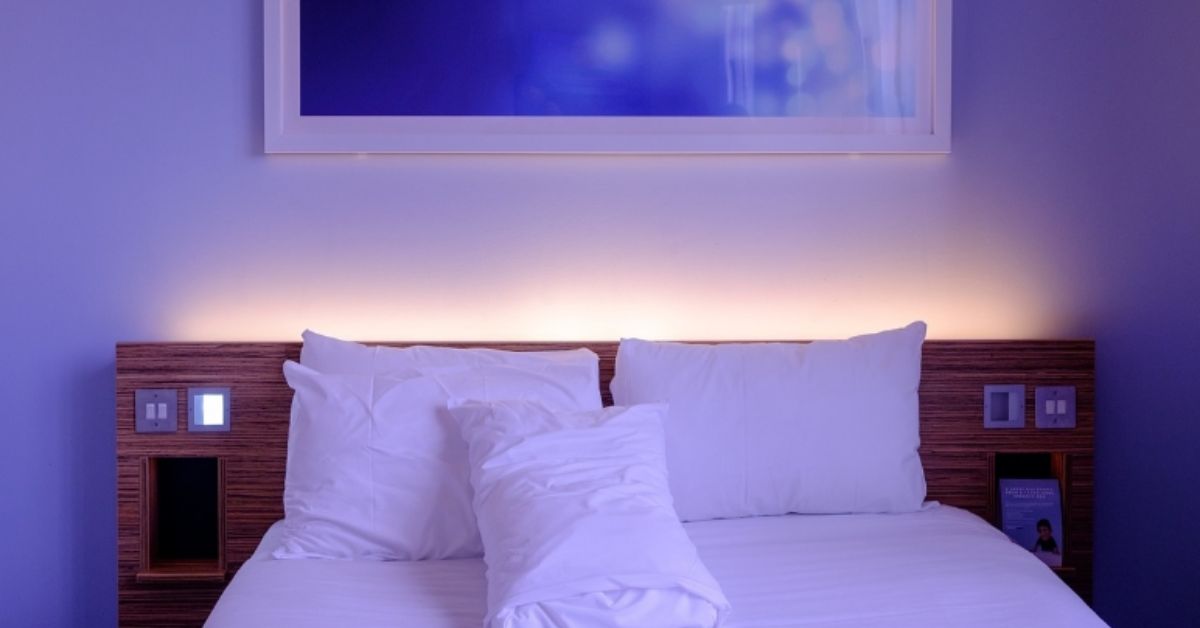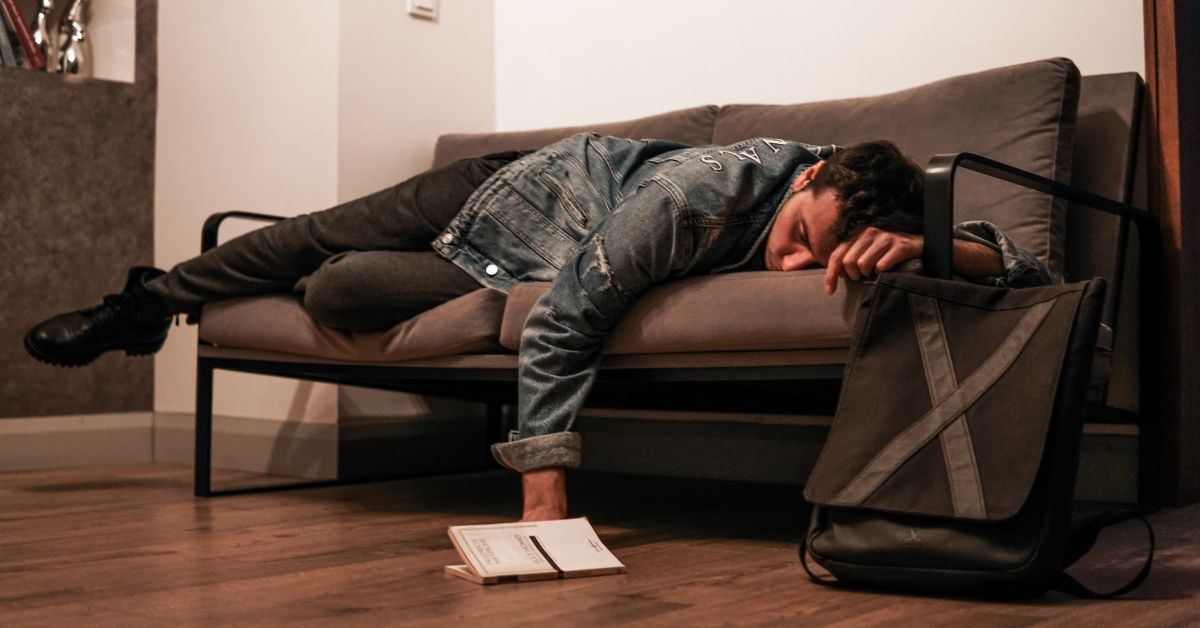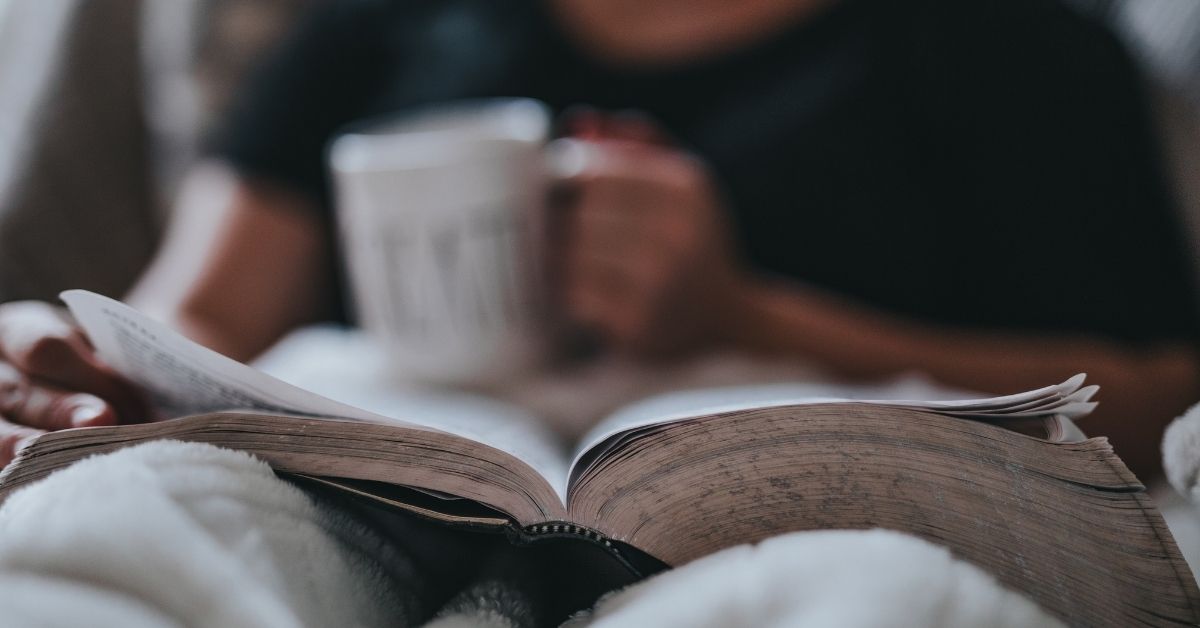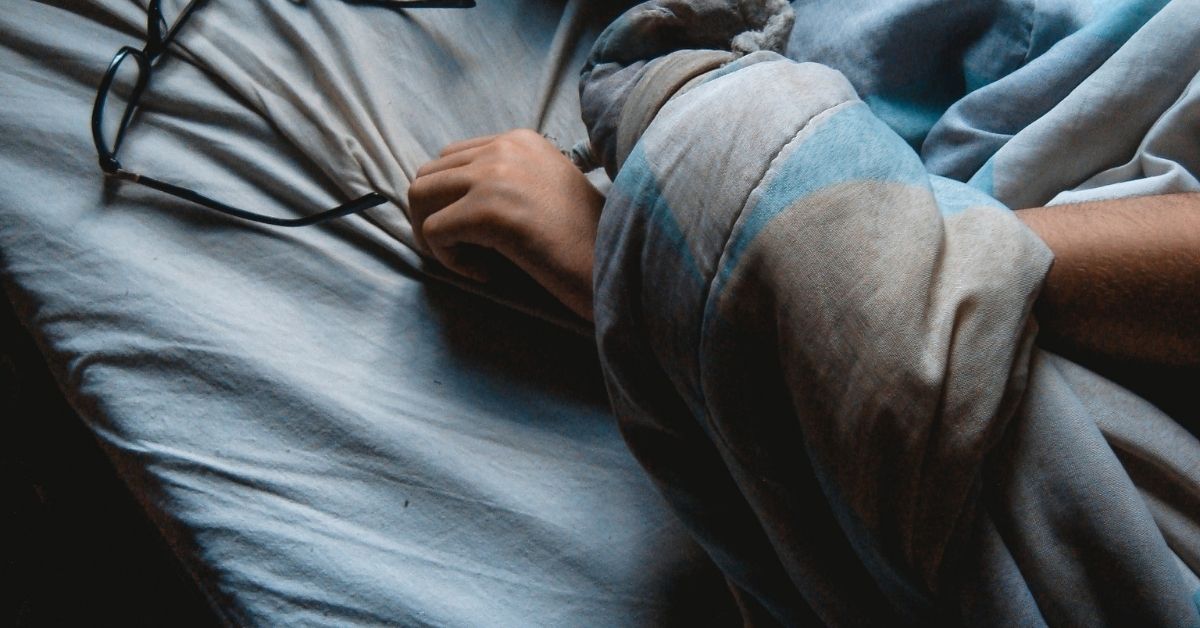Nodding off on the sofa after Thanksgiving dinner is as much of a tradition as eating pumpkin pie. For generations, turkey was blamed for that drowsy post-feast stupor so many of us experience. People inaccurately believed that the poultry’s tryptophan was the culprit. If your afternoon drowsiness is a more frequent occurrence, you may need to visit a sleep specialist for a sleep study. But what really makes you so sleepy on Thanksgiving?
The Turkey Myth
L-tryptophan is an essential amino acid found in a variety of foods including cheese, fish, eggs and of course, turkey. It’s true that tryptophan does contain sleep inducing properties. It is used by the body to produce serotonin, which is converted to melatonin—the hormone that regulates sleep.
The catch is, your turkey dinner simply doesn’t contain enough tryptophan to make you feel sleepy. In fact, turkey contains no more of this amino acid than other types of poultry such as chicken. In order for L-tryptophan to make you tired, it would need to be consumed on an empty stomach with no other amino acids or proteins. A sleep study can help you determine if it’s diet or a sleep disorder such as narcolepsy causing your drowsiness.
Carbohydrates’ Role
The reason people get lethargic after a turkey dinner has more to do with the consumption of carbohydrate-rich foods with turkey. Traditional Thanksgiving foods such as potatoes, yams, corn, stuffing and cranberries are all high in carbs.
Eating a meal full of these types of foods triggers the release of insulin. Insulin removes most amino acids from the blood, except for tryptophan. So essentially, it’s the combination of eating heavy carbohydrates with food containing tryptophan that can make you sleepy.
The Alcohol Effect
Holiday libations may be another culprit. If you’re drinking alcoholic beverages on Thanksgiving, it can make you feel tired and drowsy. Alcohol has a sedative effect when it’s first consumed. It can, however, interrupt your sleep later in the evening. Alcohol also relaxes the throat muscles, which can worsen sleep disorders such as sleep apnea. A sleep study can confirm if your daytime sleepiness is due to sleep apnea.
Thanksgiving Tips for Sleep Disorders
When you have a sleep disorder, adding holiday drowsiness to the mix can make things worse. Following these tips can help you enjoy the holidays without sacrificing quality sleep:
- Avoid overeating
- Limit alcohol consumption
- Manage stress
- Maintain treatments
Schedule a Sleep Study
If your sleep issues are still around long after Thanksgiving dinner, it’s time to see a sleep specialist. A sleep study can help diagnose sleep disorders such as sleep apnea, narcolepsy, REM disorder and more. Visit Dr. Nassar and his team at Jacksonville Sleep Center to be on your way to healthy, restful sleep. Give us a call at (904) 854-6899 to schedule an appointment.

